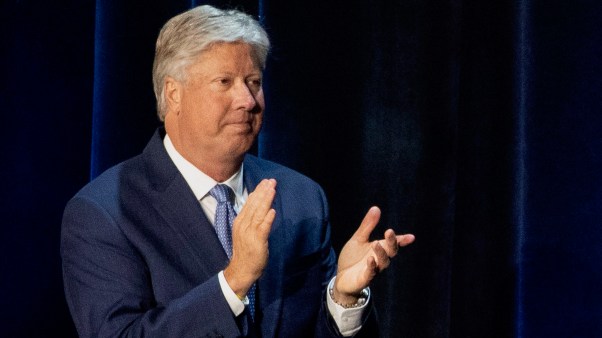Long, white, silent corridors. Tubes, pumps, and machines to keep people alive. It’s a time of impersonal death. Our society has changed the way of dying and tried to silence it. But the taboo is ending; euthanasia, death-education seminars, research projects on terminal illness and suicide, and pastoral counseling centers on dying are the new frontiers of ministry.
“The question is not one of killing people. It’s the question of letting them die.” says Jerome Nathanson, a leader of the New York Society for Ethical Culture and a proponent of euthanasia. In case after case, terminally ill patients are kept alive by machines, or by what some doctors term “heroic measures.”
California physician Theodore C. Bauerlein tells of a patient with irreversible brain damage who was kept alive for eight years; his medical expenses totaled nearly $300,000. “All you had to do the doctor explains, “was pull out the tubes and stop feeding him. He would have died within seventy-two hours without any pain.” More and more doctors, with the agreement of the family, are “pulling out the plug,” or practicing euthanasia, according to a survey conducted by R. H. Williams of the University of Washington medical school. Many other doctors agree with Dr. Bauerlein who says, “I may not take life, but I don’t have to sustain life under all circumstances either.”
With the aim of dignifying death, the Euthanasia Educational Fund publishes “A Living Will.” A person asks to be allowed to die and not be kept alive by artificial means.”
The distinction between passive and active euthanasia is getting more attention from churches and religious groups. The National Association of Evangelicals at its annual meeting affirmed “the right of persons to die with dignity without the use of extraordinary means to prolong biological life. In no case is euthanasia justified.” But say euthanasia proponents, without “extraordinary means” many would die; to deny these means is considered a form of euthanasia. Recently the Dutch Reformed Church, Holland’s largest Protestant body, stated approval of passive euthanasia.
Merle Jordan of the Danielson Pastoral Counseling Center at Boston University thinks that “there are occasions when passive euthanasia is acceptable.” But that is only one of the problems he faces.
“Blessed are they that mourn,” says Jordan, is a text too many churches overlook. “They don’t realize the healing power of positive grief and mourning.”
In dealing with bereavement, Jordan says, it is part of the pastor’s duty to mobilize congregational resources to help the grieving family. If, for example, a family in the congregation has lost a child, perhaps another family who also experienced such a loss—“and successfully worked through their grief,” stresses Jordan—should counsel the newly bereft family. Similarly, a widows-to-widows program within the church would be beneficial. One problem many ministers face in dealing with death in their congregations. Jordan says, is that they haven’t come to terms with their own attitudes toward death and dying.
Another problem is the church’s attitude toward suicide. Frequently, explains Jordan, the church fails to support the survivors of those who have committed suicide; but these people frequently experience great anger as well as grief and need much help.
Canadian churches are taking a closer look at the suicide issue. In Canada attempted suicide is punishable by a fine or imprisonment. There is a move among some Canadians to establish a medical institution to help people kill themselves. Donald Brown, a member of the British Columbia Civil Liberties Union, said that laws prohibiting suicide interfere with a person’s right of self-determination.
The whole question of the “right to die with dignity” is receiving attention on university and college campuses across the country. At the University of Maryland, for example, Dr. Daniel Leviton gives a series of well-attended lectures on death, bereavement, and suicide. Leviton also considers the child’s concept of death. Too often, he observes, parents propagate false notions about death to the child, often by refusing to let the child attend relatives’ funerals.
Now that schools and universities are picking up death as a seminar topic (there are many seminars held for professional counselors, such as the ones Jordan oversees at Boston University), some evangelicals fear that discussions will become secularized. Dr. William Worden, former dean of Gordon College and now resident director of the “Omega Project” funded by the National Institutes of Health and based at Massachusetts General Hospital, says that death is “a hot topic among college students now.” A few months ago at a late-afternoon seminar, Worden spoke on “The Right to Die” to an overflow crowd. “I was surprised to see so many students; they were even sitting in the aisles,” he said.
Some critics, says Worden, claim that the church evades the subject of death, focusing its attention on the resurrection. “But I think that’s just where the church does consider death.” Through his work (the Omega Project is regarded by many in the field as the most significant research being done in this country on death and dying), Worden has noticed that people within the church react very much like those outside the church in talking of their own death. “Their concepts are different, and the commitment is different, but they’re still afraid to talk of dying.”
Worden is concerned that the church will lag behind on this issue. “If the church doesn’t begin working on death education, people in the mental-health field will. It’s time for the clergy to get involved in death education.” He urged. “Let’s be on the front edge.”
Second Birth Centennial
Disunity in American life after the Civil War extended to the Sunday-school movement, about fifty years old at the time. In an effort to help restore harmony among the saints, Methodist minister John Vincent, Chicago Baptist layman B. J. Jacobs, and others won approval at the 1872 Sunday School Convention in Indianapolis for their idea of having every man, woman, and child in evangelical Protestant churches study the same biblical passage on any given Sunday.
Thus began the Uniform Sunday School Lessons, said to mark the “second birth” of the American Sunday-school movement. The lessons became enormously successful, serving as the standard fare for decades in many denominations and receiving the backing of many noted leaders, including evangelist Dwight L. Moody. As a result, Protestants all over the country for a time spoke virtually the same theological language.
Despite the introduction of other lesson series by independent and denominational publishers, the uniform lessons (also called International Lessons) are still the most widely used, according to Religious News Service. More than thirty million pieces are distributed quarterly.
Publishers are provided with Scripture passages and lesson outlines planned by a committee representing thirty churches and groups, then produce their own lesson versions. The planning committee is part of a National Council of Churches division.
A number of oldtimers and contemporary Christian-education specialists alike gathered in Indianapolis last month for a service observing the centennial of the uniform lessons’ birth.
British Union Fails
Spectators stood six-deep in the galleries of Church House, Westminster, this month as the archbishop of York announced voting figures on the Anglican/Methodist merger scheme. All three houses showed a simple majority (bishops 34–6; clergy 152–80; laity 147–87), but it was nearly 10 per cent short of the 75 per cent required. The general synod thus again rejected a plan that the Methodist Conference has twice approved.
It is unusual for a Church of England assembly to show dissent to a course of action urged on it by both archbishops. For urge it they have done in every way right up to the moment this month when Archbishop Michael Ramsey relinquished the presidential chair to his colleague and himself stood up to move acceptance of the scheme.
Ramsey dealt first with the main objections made to the plan: the alleged doctrinal unsoundness of the Service of Reconciliation; the potential damage to relations with the church of Rome; the obstacle placed in the way of a multilateral union of British churches; the plea that the ecumenical movement was moving into a new phase in which structural schemes between churches were out of date; and the contention that the scheme was divisive. His dismissal of these objections was as predictable and as repetitive as the debate that followed.
“My first reaction is to be rather puzzled,” said Ramsey afterwards at a press conference. “I think the vote against includes some genuine element of conviction; but there was a hard core of people not wanting change.” Asked whether he would resign, he replied. “I am still in possession of my faculties, and I am here to work.”
On the subject of what happens now. Ramsey said: “I believe we shall wait a bit, and then rethink the whole thing. By that I do not mean that we shall cook something up in the spirit of ‘now try this.’ I am not afraid of a vacuum if it is a godly vacuum, knowing our own impotence and seeking light from Him.”
The general synod did, however, give overwhelming approval to a proposal to enter into full communion with the Church of North India and the Church of Pakistan.
J. D. DOUGLAS
Religion In Transit
Pastor Howard Conn of the Plymouth Congregational Church in Minneapolis and his wife notified their congregation in a letter that they will separate after thirty-four years. Meanwhile, youth evangelist Don Johnson preaching at the Broadmoor Baptist Church in Memphis apologized for having had a busy week, then from the pulpit asked Ann Dalton if she would marry him. “Yes, sweetheart,” she replied. After his sermon church members chimed their congratulations.
While the American Jewish Committee reported steadily improving Jewish-Christian relations evident in church pronouncements, the United Church of Canada’s Central Council 57-member executive committee voiced concern about “a climate of alienation and mistrust” between their church and “a large portion of the Canadian Jewish Community.”
The late Reinhold Niebuhr’s name will be deleted as “founding editor” from the masthead of thirty-year-old Christianity and Crisis (circulation: 11,000) because his widow and son object to articles with “an anti-Israel animus,” especially one by Israel Shahak who charged that annexation of East Jerusalem by Israel was “immoral.”
An “intense involvement in religion” may be better than methadone in helping many addicts kick their habits, says Jerome H. Jaffe, the government’s top drug abuse official.
The 381,000-member Wisconsin Evangelical Lutheran Synod, which declines to participate in the military chaplaincy program, terminated its civilian chaplaincy among troops in South Viet Nam.
Six denominations with about four million Sunday School pupils have formed a partnership for Christian education projects. Joint Educational Development members: the Christian Church (Disciples of Christ), the Episcopal Church, United Church of Christ, Reformed Church in America, United Presbyterian Church, Presbyterian Church, U.S. (Southern).
Church construction, in decline for the past three years, is staging a modest comeback, says the U. S. Department of Commerce.
A philanthropy study reveals that Americans gave more money ($8.6 billion) last year to religion than ever before but it represents a smaller share of their charitable dollars—down nearly 5 per cent to 40.7 per cent. An Internal Revenue analysis shows that Americans who itemize their deductions give less than 3 per cent of their adjusted gross incomes to church and charity.
Deaths
RICHARD R. ROSEVEARE, 69, former Anglical Bishop of Accra, Ghana, and staunch critic of racism who clashed with President Kwame Nkrumah over pagan religious practices; in Kelham, England.
JACOB STAM, 72, since 1936 a lay leader of Latin America Mission and for twenty years its president while associated in the leadership of many other evangelical organizations; in Paterson, New Jersey, from conlplications following surgery.
Southern Baptists in Miami, bolstered by thousands of youth from across the nation, plan to blitz delegates and demonstrators alike with the Gospel at the upcoming political conventions.
President Nixon outpolled Democrat George McGovern, his closest competition, by a three-to-one margin in a straw poll of Westmont College students and faculty taken after resumption of bombing of North Viet Nam.
The administrative buildings of nine denominations and several church-related agencies in Portland, Oregon, have been placed on county property tax rolls. Appeals so far have been in vain.
Episcopal Bishop John Seville Higgins of Rhode Island and twenty-eight of his priests sent a telegram urging President Nixon to stop U. S. bombing in Indochina, but thirty of his clerics sent a telegram supporting Nixon’s attempts to end the war.
After a four-hour debate, delegates of United Church of Christ churches in the San Francisco Bay area approved the ordination of affirmed homosexual William Johnson, 25, who hopes someday “to share a deep love relationship with another man.”
More new churches—210 of them—were opened last year by the Assemblies of God than in the previous twelve years. A total of 1,578 were opened in the last ten years.
Personalia
Benjamin L. Hooks, 47, both a Baptist minister and an attorney in Memphis, was nominated by President Nixon to serve on the Federal Communications Commission. He will be the first black and first clergyman to serve on the FCC, which regulates all radio and TV stations.
Westmont College’s new president is Lyle C. Hillegas, 37, the youngest president the school has had and the first to come from its own faculty.
Probable nominee for the post of World Council of Churches general secretary to replace Eugene Carson Blake who will retire: Philip A. Potter, 51, director of the WCC’s Commission on World Mission and Evangelism. He is a black Methodist from the West Indies.
Captain Alene Bertha Duerk, director of the 2,300-member Navy Nurse Corps, will become the first woman admiral in Navy history. She is a Missouri Synod Lutheran.
Bishop Allen Howard Johnston of Waikato, New Zealand, is that nation’s new Anglican Primate and Archbishop.
James M. Rogers, Jr., 31, the 1972 Teacher of the Year in a nationwide poll conducted by educators, is a choir member and youth counselor at a black Baptist church in Durham, North Carolina, where he teaches high school history.
Anglican archbishop Marcus Loane, 60, of Sydney will join two Papuan bishops in a ten-day trek over a treacherous mountain trial in New Guinea. The project is designed to help raise a million dollars (through donors supporting the walk) for the Diocese of New Guinea in anticipation of the nation’s independence.
Minneapolis pastor C. Philip Hinerman was named board chairman of Forum for Scriptural Christianity, an unofficial evangelical movement in the United Methodist Church.
Civil rights and anti-war activist Paul Moore, Jr., 52, became the Episcopal Bishop of New York City, succeeding the retiring Horace W. B. Donegan, 71, who served for twenty-two years.
Amid a dispute with his presbytery involving property and other matters, William Fitch has resigned as pastor after seventeen years at the Knox Presbyterian Church in Toronto. He has been a leader in evangelical causes for many years.
Mrs. Billie McClure, who claims her discharge as a Salvation Army officer was based on sex discrimination, will take her case to the Supreme Court now that Georgia courts have ruled the Civil Rights Act has no jurisdiction in the employment relationship between a church and its ministers.
World Scene
A German state supreme court ruled that an American rock troupe could not perform its musical under the title Jesus Christ Superstar because the title violates a federal law against blasphemy. It is now billed only as a “Jesus-Christus-Konzert.”
All major churches, including Roman Catholics, are taking part in a massive, unprecedented evangelism campaign in England designed to reach its climax at Easter, 1973.
United Methodists in North India can now proceed with merger into the Church of North India. The decision by the United Methodist Judicial Council in Atlanta last month reversed an earlier unfavorable ruling by the denomination’s South Asia Central Conference.
The annual conferences of the growing British Inter-Varsity Fellowship brought together more than 1,200 students at Swanwick and other centers.
Hindustan Bible Institute students blitzed Nellore, India (population: 150,000), with 100,000 tracts, thousands of Scripture portions, and a series of evangelistic meetings packed mostly with Muslims and Hindus; more than 100 decided for Christ.
A Total Mobilization Evangelism campaign has begun on Okinawa, with the Japanese Evangelical Missionary Society leading the way toward an island-wide crusade in 1973.
The Hungarian Methodist Church has published its first hymnal. Of the 5,000-copy print run, 1,000 copies have been allotted to Christian Brethren churches.
The World Relief Commission of the National Association of Evangelicals sent $2,000 to Iran for earthquake victims. The WRC in the past year has provided its overseas outlets with more than $100,000 cash and millions of dollars worth of food and other goods. Their Hoa Khanh Children’s Hospital in Viet Nam cared for 17,000 children.
Chinese Communist groups have been visiting the manse of Trinity United Church in Gravenhurst, Ontario. It is the birthplace of Dr. Norman Bethune, a medical missionary to China whose memory is revered in the People’s Republic for his medical care of Mao Tse-tung’s troops during the “Long March” of 1934.










